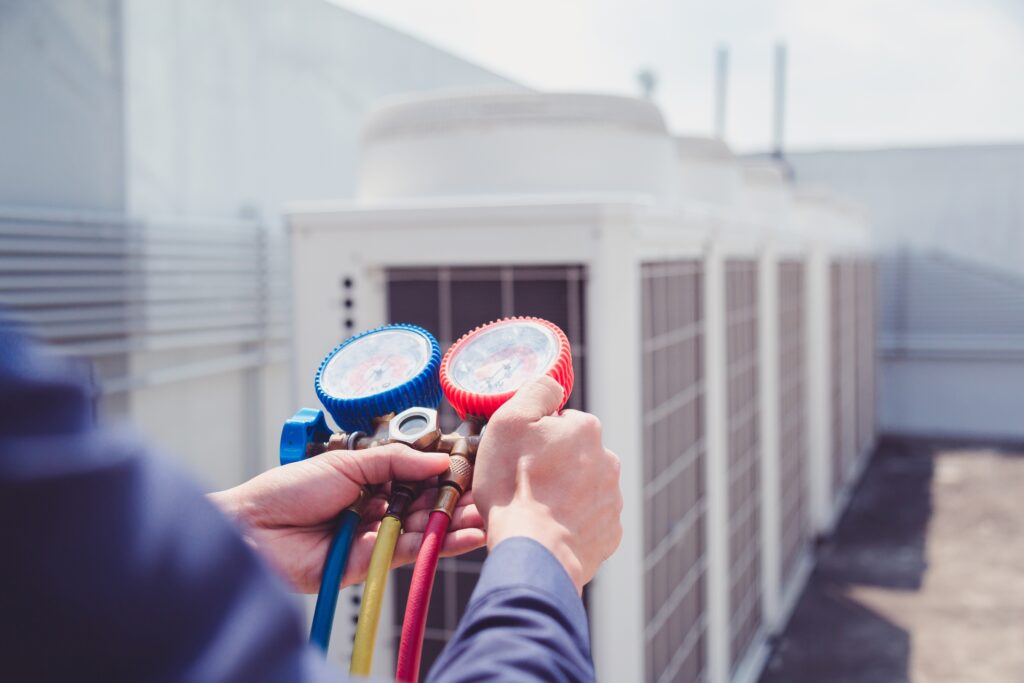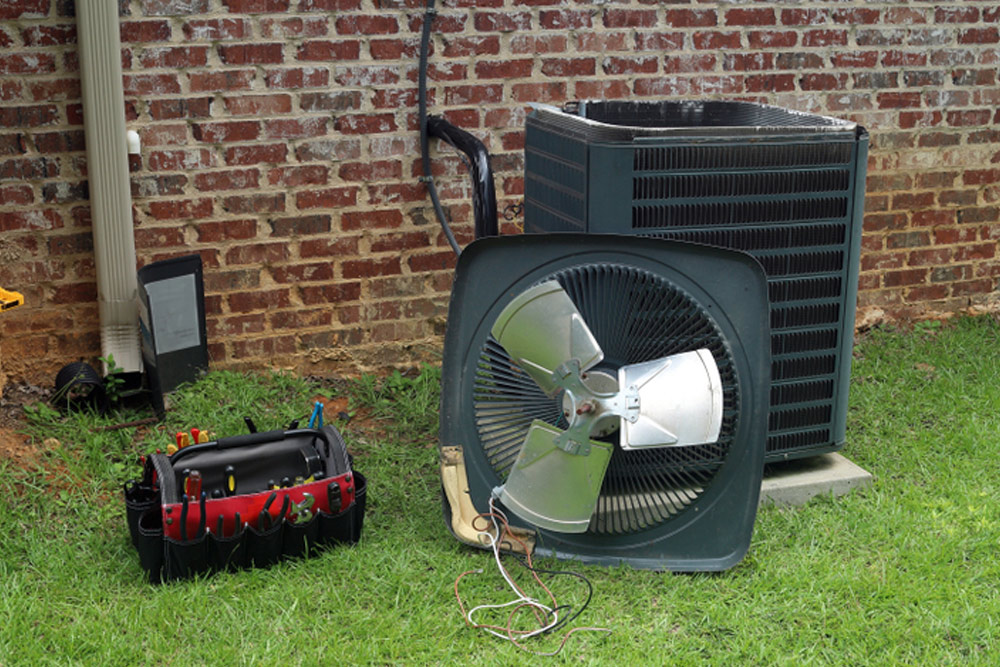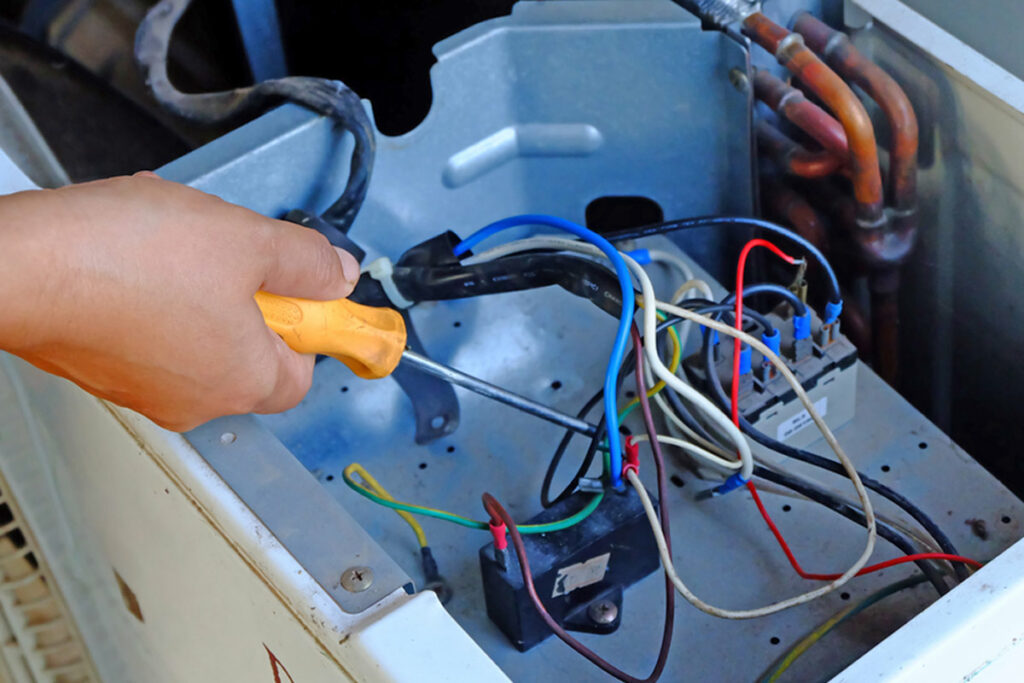HVAC maintenance is an indispensable part of owning an HVAC system. Well, these systems are composed of multiple mechanical and electrical components as well as the means to connect these components to each other in order to create the system, and therefore, it is clear that maintenance would be crucial for them to keep their performance at desired levels, as well as lowering heating and cooling repair or retrofit costs.
A convenient platform is provided here at Linquip for our customers to meet their HVAC requirements, and we would like to help you understand what you can expect regarding the maintenance of your HVAC systems.
What is HVAC maintenance?
In order for to have your HVAC system maintained, there are a number of factors to consider. The entire system needs to be checked annually for visual signs of defects, so that you would not be surprised by any failures due to those possible problems.
In addition, there is always a concern for filters used in the system, such as air filters, to be clean and in good shape. Speaking of cleanness of filters, there could be dust and debris accumulated in other sections such as blowers or other parts that need to be cleaned before they damage the system. Moreover, such particle build-up in air ways can lead to clogs and damage to the system as well as lowering air quality.
Electrical components shall also be checked for their voltage so that they would not compromise the system. Additionally, the electrical connections should be maintained to ensure safety of the system as well as avoiding its failure. The system should also be calibrated. Take the thermostat settings as an example where the actual temperature shall match the reported temperature.
For the case of cooling systems, the refrigerant levels should be kept at desired points. The same notion is valid for heating systems for which the fuel lines and connects as well as exhausts need to be kept in good shape.
HVAC maintenance also includes the lubrication of moving parts. Moving parts need to be properly lubricated in order to prevent excessive heating and friction that leads to their failure.
How often does HVAC system need maintenance?
HVAC maintenance requires for the components of the system to be inspected on a monthly, seasonal, or annual basis depending on the parts.
Cleaning the system from debris, and possible damage or leakage of refrigerant lines are tasks that are better done monthly in order to maintain optimal functionality of the system.
In addition, there are considerations regarding season changes. Some parts might be idle in the system during Summer or Winter, so one needs to take necessary steps to avoid unnecessary wear of components as well as usage of energy sources. It is also advised to change filters seasonally in order to lower strain and requirement for any excessive heating or cooling repair. Installing an HVAC access door can greatly enhance the ease of maintenance and ensure that all inspections are thorough and efficient
There are also some annual maintenance task to be carried out such as visual inspection of the entire system.
Preventive HVAC Maintenance
In order to avoid replacement and heating and cooling repair costs for the components of the HVAC system, some preventive precautions could be taken. This would help save money for the users of the HVAC system, keep the system’s reliability at desired levels, and also provide high quality air and comfort for the system users consistently.
You may see how much these routine system checkups would cost, but let us see what could be included in an HVAC maintenance checklist.
In the following, some preventive HVAC service routines will be given as checklists. You can have these checklists as guiding tools to know what to expect from a professional who does the technical work for you, as well as adjusting what you want to do based on your considerations.
As mentioned before, HVAC maintenance schedule could be based on a seasonal basis., therefore let us see how preventive maintenance tasks in hotter seasons (Spring/Summer) could differ from colder ones (Fall/Winter).
HVAC Maintenance Checklist for Hot Seasons
The preventive HVAC service tasks in Summer or Spring include the following:
- Inspecting ducts, vents, cabinet, refrigerant lines, and the perimeter of the unit for debris, mold, leaks, charge, …
- Cleaning the condenser and evaporator
- Cleaning filters or replacing them if necessary
- Cleaning drain lines and pans
- Checking humidity levels as well as thermostat and controls for proper measurement and regulations
- Inspecting fan motor, blowers, and blades
- Lubricating moving parts
- Replacing worn-out belts and pulleys
- Inspecting electrical components and connections as well as replacing batteries
HVAC Maintenance Checklist in Cold Seasons
The preventive HVAC service tasks in Fall or Winter include the following:
- Inspecting the heat exchanger, heating elements, heat pump, burner, and the ignition system
- Changing the filters on heating equipment
- Cleaning drain lines and pans
- Checking thermostat and controls for proper measurement and regulations
- Inspecting fan motors, blowers, vents and ductwork
- Lubricating moving parts
- Replacing worn-out belts and pulleys
- Inspecting electrical components and connections as well as replacing batteries
- Check for gas leaks and flue gas passageways
HVAC Maintenance Costs for 2020
HVAC maintenance could help you significantly cut your operational costs. You might be able to do that for monthly service plans for rates as low as $15 up to $30. This cost could cover two times of tune-ups, cleaning, and system calibration if done annually. If you do not perform these maintenance routines, you could increase your other costs and lower the air quality even to dangerous levels.
Air ducts need to be cleaned every two to five years, and the cost to do that would be around $30 to $40 per duct. This cleaning helps your system work with high efficiency during its service life and lower your operational costs over time. Moreover, each linear foot of ductwork could be replaced for $30 to $60, while the rate for repair is nothing more than $5.
In general, heating and cooling repair costs range between $150 to $450 on average. The heating and cooling repair cost is mostly on the AC service and then on the furnace service. Diagnostic tests could cost about $80 to $100. The average cost for AC service is about $320, and $270 for furnace services. Should your system require any tune-ups, they could cost between $80 to $120.
Be advised that poor maintenance raises the risk of sudden system problems that could require an emergency service call. Such emergency services could cost you as much as double or triple the normal rates. You should keep in mind that after installation of a new HVAC system or performance of some HVAC maintenance routines, some HVAC inspection needs to be carried out in order to make sure about proper operation and installation of the system. This inspection could cost something between $50 to $150.
HVAC Service, and Heating and Cooling Repair Q&A
How often do I need to perform an HVAC service?
Any HVAC system requires an HVAC service done by a professional once a year. This includes systems such as furnaces or standard central ACs. If you use a heat pump system year-round though, you will need to schedule an HVAC service for it every 6 months.
- Read more about HVAC for New Construction
What is included in an HVAC service?
Some comprehensive factors will be checked in an HVAC service such as efficiency of the thermostat operation, possible leakages, and problems with the electrical connections and wiring.
How much does an HVAC service cost?
The type, size, complexity, and age of your system as well as the time of service schedule play a role in this, but you should expect something between $100 and $150 if you would not require any heating and cooling repair.
Is an HVAC service plan worth it?
An HVAC service plan could cost from $150 to $500 annually depending how much service you get with it. Well, if there were not much need of repairs during the years while you are paying say $250 per year, then you are overpaying for your HVAC maintenance.
How do I carry out an HVAC service myself?
Some of DIY HVAC service things you can do include keeping the AC and heating systems free of debris, cleaning the registers, checking the filters and replacing them if necessary, listening for any unusual noises, turning some components off for a while sometimes such as the humidifier, or even using fans for a while. Well, you always need to know when you should call a professional to do your HVAC service anyhow.
How do I know if I need a heating and cooling repair or maintenance?
When you see signs of wear and tear in your HVAC system such as louder-than-normal operation of the unit, leakage around the unit, not enough coolness or hotness of air coming inside, and constant switching of the system between off and on, it means you need a heating and cooling repair scheduled to save energy and your money.
How much does a heating and cooling repair cost?
Well, when it comes to heating and cooling repair costs, you should generally consider factors such as the direct cost of parts to be replaced, the complexity of performing the heating and cooling repair, and whether the parts of labor are covered by warranty.
Is it possible to avoid the heating and cooling repair?
You simply cannot entirely escape the heating and cooling repair, but if you change the filters every 3-6 months, and make sure there is no blockage of outdoor unit as well as indoor vents and passages, you can expect a long-term healthy operation of your HVAC system.
How much does it cost when heating and cooling repair means replacing the HVAC system?
If you should replace your entire HVAC system when it is old and heating and cooling repair is no longer a solution, you need to consider the average cost of $4800 to $9400 for a new central air conditioner unit and a new gas furnace in 2020. If you also need to replace the ductwork, you might also consider an additional average cost of $2000 to $3000.
To help offset the cost of repairs and/or replacement, you may want to invest in home appliance insurance that covers major systems like HVAC as well as plumbing and electrical.
More on HVAC maintenance
This video offers the considerations for HVAC preventive maintenance in a visual representation.
Buy Equipment or Ask for a Service
By using Linquip RFQ Service, you can expect to receive quotations from various suppliers across multiple industries and regions.
Click Here to Request a Quotation From Suppliers and Service Providers
Read More On Linquip
- Installing an Air Source Heat Pump: Everything You Need to Know
- What is HVAC? Types, Parts & Diagram
- HVAC System Components Made Easy
- HVAC Economizer 101: A Basic Introduction
- Cooling Tower Maintenance: Essential tips
- What is the Difference Between MEP and HVAC? The Easy Answer
- The Best HVAC Vacuum Pump (Clear Guide)
- Top Manufacturers of HVAC Equipment in The World






We’re so glad we could help Alice. Generally, a change of behavior, one of which the sounds a mechanical/electrical unit makes, is a sign of some sort of issue or fault in the system. Also, systems will still require some maintenance even when you don’t use them to stay reliable. So, it’s a wise decision to have your heating unit serviced. Good luck!
Air conditioners require regular maintenance to keep it working at high efficiency with minimal issues. Any air conditioner user can make a decision to see your post for cooling and heating problems and fix the unit to be solved. Thanks for sharing the helpful article.
Dear Jennifer,
You’re absolutely right about the necessity of regular maintenance for air conditioners. We’re so happy you’ve found this article useful and hope you could lower your unit costs by considering our suggestions.
Can I get the refrigerant myself
Thanks for providing HVAC maintenance checklist including the inspection of ducts and vents, cleaning the condenser, filters, and drain lines and so much more. My dad just purchased a newly built building in town which he wants to rent out on local businesses. However, it needs commercial hvac system installation as soon as possible before it can start running. These maintenance tips will surely be put to use in the future!
Thanks for visiting our website. You can visit our Industrial Equipment page, where you can find various HVAC components based on your application and demand. You can also visit our expert page and take advice from hundreds of professionals on your issue.
Nice blog! Thanks for sharing the information about HVAC
Thanks for visiting our website and leaving your comment! We hope to hear from you again in our other posts.